1960
Statistics of Internet use in developing countries and the United States
PewReseachCenter published the results of a statistical study of the use of the Internet in the US and the developing world for 2014.
PewReseachCenter examined public opinion on the following topics:
PewReseachCenter examined public opinion on the following topics:
- how respondents assess the impact of the Internet on education, public relations, politics, and public morality;
- as access to the Internet is associated with income;
- What form is the most popular online activity ;
- replaced with smartphones ordinary mobile phones;
- the percentage of residents have access to the Internet;
- what percentage have computers at home;
- what percentage has mobile phones and smatrfony;
- what percentage of users of fixed telephony;
- and much more.
The map below shows the percentage of people in different countries who use the Internet at least temporarily, or have your smartphone:
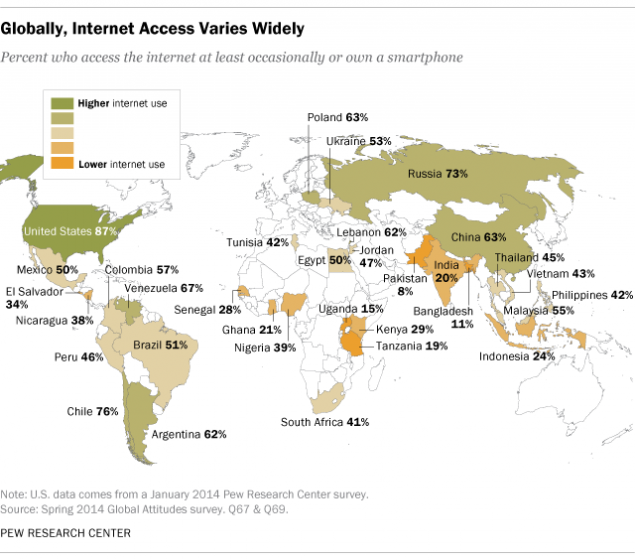
General information
The main source of information for this article will be the сокращённая version of the report (there are lots of charts), but PewReseachCenter also provides a full отчёт.
PewReseachCenter reports have already been mentioned in the notes:
Cell phone in different countries (in 2011)
Internet has become the main source of news (2011)
Demographics sots.setey. Know your target audience in the face (2013)
So you can compare the data from this study with those of previous years.
1. What do you use Internet
Most Internet users have noted that they use social networks: ranging from 93% in the Philippines and 58% in China. Social network users are found in all age groups, but most of them are among those who are younger than 35 years.
Together with social networks, 86% of Internet users in developing countries are using the Internet to communicate with friends and family. Users prefer to use the Internet to access political (54%), health (46%) or information authorities (42%). Most political information obtained from the Internet in the countries: Tunisia (72%), Lisbon (70%) and Egypt (68%).
Using the Internet to express their political and religious views is less popular. Less than four out of ten respondents said that they share their views on goods (37%), political events (34%) and religion (30%). Discussion of these topics ranging from 8% of social network users from Russia and Ukraine, who discuss politics and religion, up to 64% of their users Jordan, who do the same.
2. Possession of mobile phones and smartphones
Among the owners of mobile phones in 32 countries, 76% use them for writing text messages, 55% of users in developing countries use their phones to take pictures and record video.
Share holders of ordinary mobile phones and smartphones are shown below. In general, smart phones have not yet replaced the ordinary mobile phones.
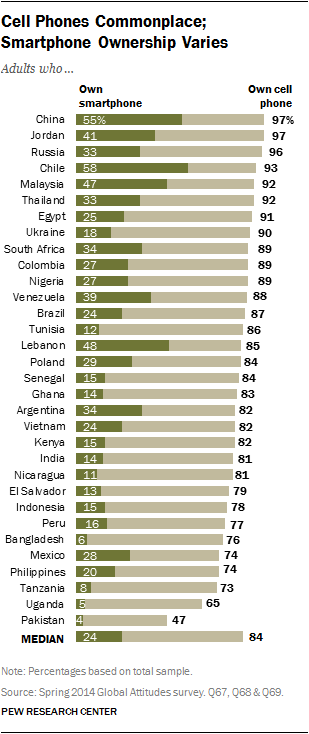
3. The percentage of Internet users in different countries
Three leaders in the list of research in the country: the United States (87% of the population uses the Internet or a smartphone), Chile (76%) and Russia (73%).
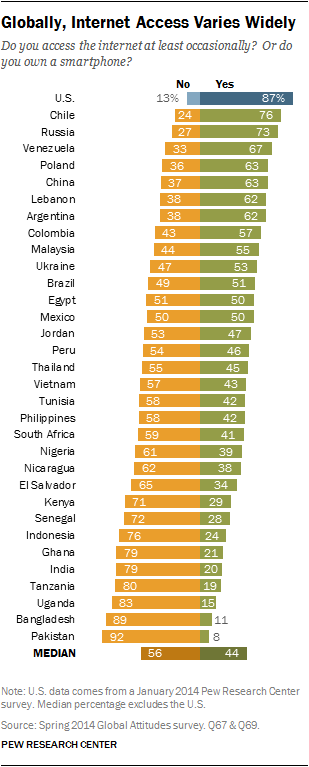
4. The percentage of owners of home computers
The leaders of the United States (80%), Russia (78%) and Chile (72%).
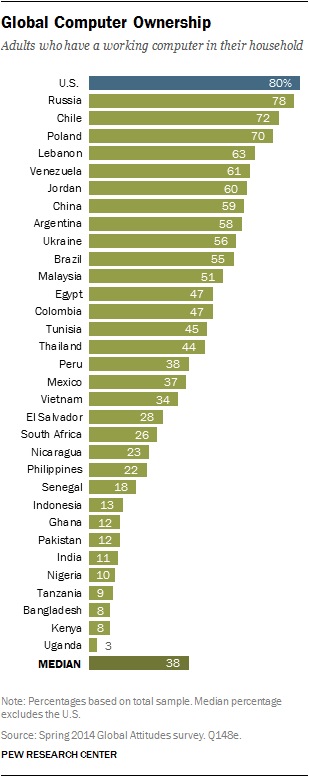
5. Percentage of fixed telephone lines in different countries
Most telephone lines used in Lebanon 79%, significantly higher than in the United States (60%). About half or more in Venezuela (59%) and Argentina also have landlines.
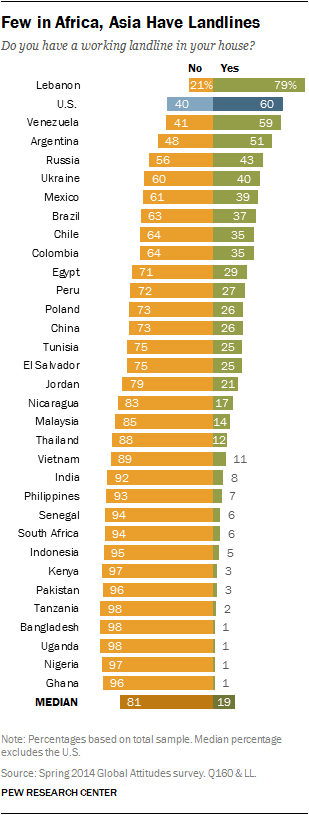
6. Writing text messages - the most popular use of cell phones
Most phone users write messages to each other. Photographing phone and video recording are the most popular in Latin America - about two-thirds of Venezuelans (75%), Chileans (72%), Mexicans (68%) and Argentines (66%) regularly take photos with their mobile phones.
7. What do you use Internet
Most of all - for social networking and information. Less - for career development and commercial purposes. Getting political news from the Internet more characteristic of males than for females. Data for countries:
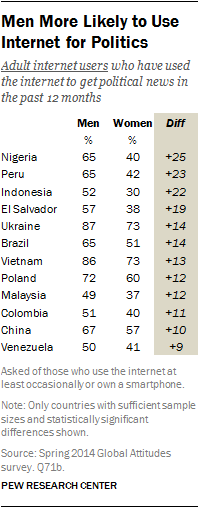
8. Factors affecting the use of the Internet
The owner of a computer at home is likely to use the Internet at the level of 0.77 (on a scale from 0 to1), or 77%. Without a computer user has a probability of 0.35 (35%). English proficiency gives the probability (+0.28), secondary education gives the probability in (+0.22), high income - (+0.12), male gender (+0.06) and the position of the unemployed - (+0.03).
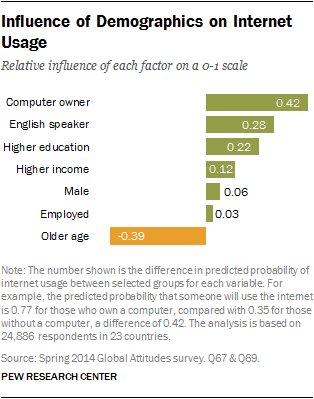
The main source of information for this article - сокращённая version of the report
Full отчёт.
p.s. I'm sorry that the pictures are not loaded on habrastorage - the authors of being asked to do a direct link to their graphic material.
p.p.s. Let me know if there is interest in other topics of this report or would like more disclosure of a particular topic - I will translate more.
Found a mistake? Let me know and I will correct.
Source: geektimes.ru/post/247674/
Kick in the future - bipedal robot walks and falls
Sports on the street, what may be useful tehnogiku?






























